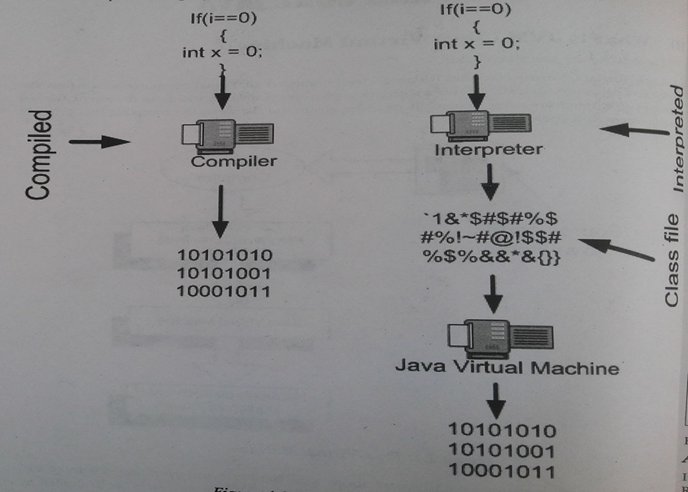Popular posts from this blog
Difference Between Compiler and Interpreter and Difference between JDK, JRE and J VM
Difference Between Compiler And Interpreter A compiler takes entire program and converts it into object code which is typically stored in a file. The object code is also refereed as binary code and can be directly executed by the machine after linking. An Interpreter directly executes instructions written in a programming or scripting language without previously converting them to an object code or machine code. Difference Between Java Development Kit(JDK), Java Run Time Environment(JRE) And Java Virtual Machine(JVM) JVM ( Java Virtual Machine ) is an abstract machine. It is a specification that provides runtime environment in which java bytecode can be executed. JVMs are available for many hardware and software platforms. JVM, JRE and JDK are platform dependent because configuration of each OS differs. But, Java is platform independent . The JVM performs following main tasks: Loads code Verifies code Executes code Provides runtime environment ...
Data Types In Java
Java Data Types Primitive data types: These data types allow variable to store only one value. Ex: double salary = 25350.56; Non-primitive or derived data types: These data types allow the variables to store multiple value of the same data type. Data Types: Arrays Ex: int a[] = {10,20,30,40,50} Strings are enclosed in "" Ex: String printval = "welcome"; User defined data type: These are developed by programmers and whose variables allows to store multiple values wither of the same type or different type or both. Ex: classes, interfaces.




Comments
Post a Comment